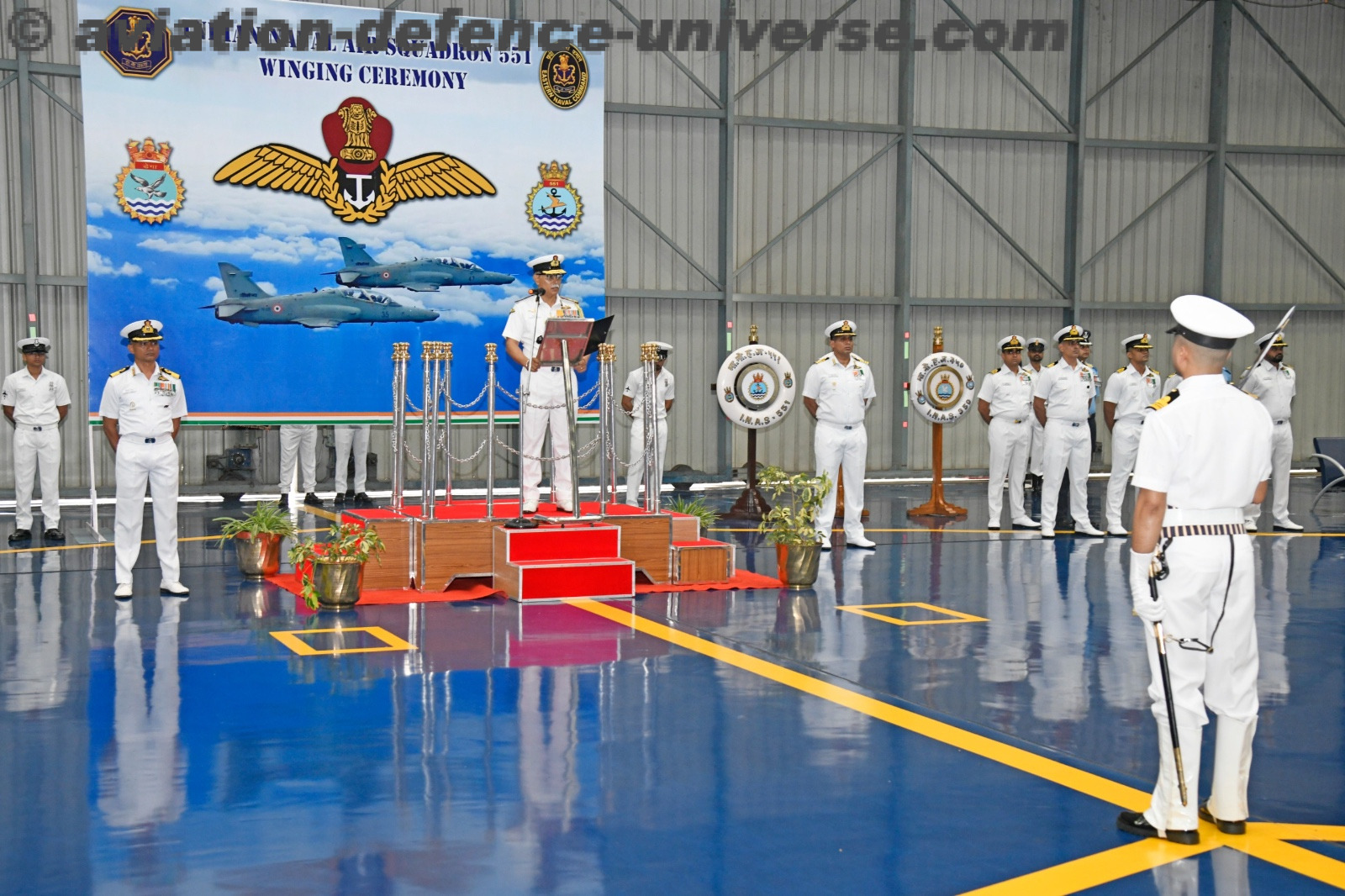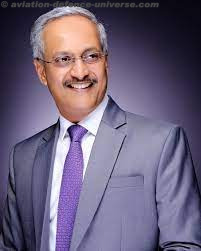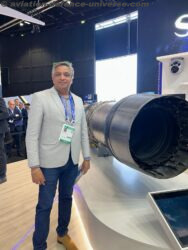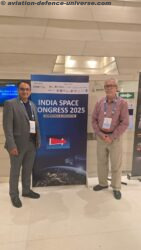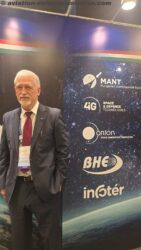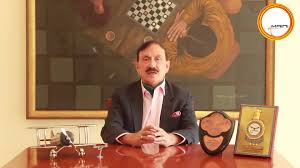
New Delhi. 21 February 2021. “Atmanirbhar Bharat mission is a great opportunity for our activities in aerospace manufacture and aviation. This provides for both Maini Precision and Maini Materials Movement to explore newer avenues to grow and contribute to the national vision. In aerospace manufacture we see this as an opportunity to support the DPSUs like HAL, BEL and BEML, Private Sector large enterprise in their indigenous development programmes and also to explore with overseas entities to partner for supporting domestic as well as global markets,” reiterated Dr. Naresh Palta,Chief Executive Officer, Aerospace & Aviation – Maini Group, in an exclusive interview to Aviation & Defence Universe (ADU) at the eve of IDEX 2021.
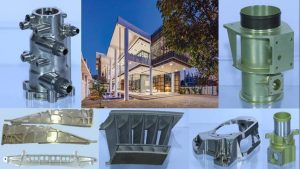
ADU. From India’s first Electric Car Reva way back in 2000 to Maini Buggy Maini Group has come a long way. What are your aerospace and defence products?
NP. In the Aviation environment we had introduced our electric products over two decades ago, with the Buggies customised for passenger movement outside the terminal and inside it. Progressively we have developed Electric Utility Carts for a wide spectrum of applications on the airfield, electric Tow Tugs for a spectrum of Towing applications and loads up to 35 Tons, and specialised Handlers & Transporters. Autonomous Buggy is the latest innovation developed in partnership with the renowned IT leader Infosys. All of these are deployed across India in commercial as well defence Aviation.
ADU. By which company of the Maini Group are all these products being developed, designed and manufactured?
NP. The electric in-campus vehicles are the products of our company Maini Materials Movement Pvt. Ltd. (MMM), since 1984. All of these are developed, designed and manufactured by Maini Materials Movement through in-house competencies and a strong network of industrial partnerships. The foremost example is development of the Autonomous Buggy in partnership with IT leader Infosys.
MMM supports reduction in mission readiness time by automation of “Ground Support Equipment” (GSE) for various mission requirements. The GSE designed and manufactured by MMM are all electric, with the flight and maintenance safety requirements incorporated at the design level.
ADU. Which Maini Group Company undertakes manufacture for aerospace sector?
NP. Our leading manufacturing company is Maini Precision Products Ltd. (MPP). It was created in 1973. In 2005 it moved into Aerospace manufacturing by creating a separate Aerospace Division. Over the last 15 years, MPP has grown from supplying precision Engine components to higher technology levels in this segment and diversified into two other verticals of Structures and Aircraft Systems. In the coming years, MPP aspires to grow up the value chain by providing complete end to end solutions for bigger modules and assemblies.
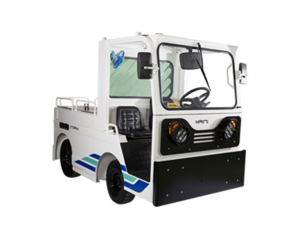
ADU. What are the products undertaken by Maini Precision Products – Aerospace Division?
NP. MPP grew all along as a build- to-print supplier to aerospace majors, focussing on the development and manufacturing of the component. It is now working for catering to the needs of customers for build- to-spec as well.
ADU. How do you source expert manpower for aerospace? For creating a skilled workforce have you planned skill development programmes and if so who will your training providers be?
NP. We recruit manpower for aerospace manufacturer by following a building block process. We take apprentice trainees from the local Technical Training Institutes under the Government of India apprenticeship programme and provide them hands-on training for a year at our plants, after which they obtain NCVT certification, making them eligible to join any manufacturing organisation. We, of course, retain as many people we require based on their talent ranking, and then assign to the non-aerospace manufacturing units, where they work for next 2-3 years. Out of these as a motivational growth opportunity for the individuals, we select the technicians on the basis of merit to move into aerospace manufacturer, as and when required.
For skilling we have been operating a very well structured in-house skilling and training program through our Vocational Training System, which has been designed and developed in-house. The skilling is done by our own experts as well as external resources. The skill mapping is a continuous process, monitored by the Human Resource function. In addition we do specific skilling by training the personnel at our customers’ locations for hands- on skill acquisition. This also applies to our shop supervisors, manufacturing engineers and managers.
ADU. Which major global aerospace leaders do you work with and what are the projects with them?
NP. Maini Precision had started its Aerospace manufacture with Safran Aircraft Engines (erstwhile Snecma) in 2005. Today it is proud to be working with a large number of aerospace leaders. The notable ones are: Safran Aircraft Engines, Eaton Aerospace, Parker Aerospace, GE- Aviation, Marshall Aerospace & Defence, Honeywell, Woodward, Pratt & Whitney, Safran Helicopter Engines, Safran Landing Systems, Tata Advance Systems Ltd, Hyde Group, ITP and ASCO.
The aircraft platforms covered are: A320, A330, A350, A380, B737, 747, 777, 787, A 200 series Cessna, and engines are: LEAP, CFM 56, GE90, V2500, GP7200.
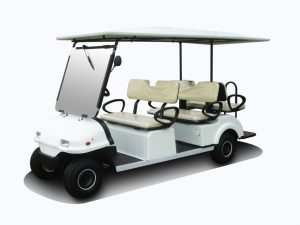
ADU. Do you have both civil and military aerospace manufacturing in the same location? If so, how do you manage procurement and man-hours?
NP. Yes, we have commercial and defence manufacturing, but the later is done in a separate identified area. Each customer and programme has material sources specifically identified and approved. Our procurement team procures from the customer approved sources for each project. Since the areas for each segment are separate the man-hours control pertains to the individual areas.
ADU. Is your collaboration with Marshall Aerospace still on?
NP. Yes, the collaboration is still on and successfully running for more than ten years now. Our greatest pride in the association with Marshall Aerospace is that we are now designated as a supplier for the entire life of the project.
ADU. What is the percentage of indigenous content in your manufacturing?
NP. Barring the material imports from customer approved sources globally, the manufacturing value addition is completely (100%) managed within the Indian supply chain.
ADU. What is your supply chain and how do you manage it?
NP. MPP has a very robust industrial partnership eco-system. It has not only Indian partners, but for specialised protective processes has the reach to global sources as well. Our Procurement and Supply Chain Team is well versed in manging this extensive Chain, with experience gained from the non- aerospace activities too. MPP has also set up consignment stocking arrangement for customers to support their JIT approach.
ADU. Has COVID-19 affected the marketing & sales?
NP. While the effect of COVID has set the Aerospace Industry back by at least two to three years, we had an impact on our overall supply chain by a minimum of 50%. However, as the scenario in the market has started normalising gradually, we are expecting a good recovery in the following months.
ADU. Please elaborate your marketing plans for both national and international markets?
NP. As evidently well known, commercial aviation is down due to the travel restrictions and minimal tourism. While the commercial aviation is very gradually trying to return to the pre-COVID levels, we have witnessed that defence market has not been affected by the pandemic to a greater extent. Hence MPP plans to diversify the overall business portfolio by focussing on defence and other sectors in both national and international market.
ADU. Has Atmanirbhar Bharat call added to your manufacturing and sales policies? If so how?
NP. Yes, Atmanirbhar Bharat mission is a great opportunity for our activities in aerospace manufacture and aviation. This provides for both Maini Precision and Maini Materials Movement to explore newer avenues to grow and contribute to the national vision. In aerospace manufacture we see this as an opportunity to support the DPSUs like HAL, BEL and BEML, Private Sector large enterprise in their indigenous development programmes and also to explore with overseas entities to partner for supporting domestic as well as global markets.
In our in- campus Electric Vehicles offerings, we see potential for providing product solutions for Atmanirbharta to replace imported platforms.
ADU. How are you looking at the Middle East market?
NP. So far we have not been in this market, although we have been studying it over time and have had connects with some of the emerging leaders. With the maturity and growth in the Middle East we see that Maini group would soon be able to identify partners in this region as well. With the continuous modernization of airports in the Middle East and focus on sustainable airports, it is logical for the airport operators to have more electric vehicles. We see that as a great potential to provide these platform from the neighbourhood location of India.
































